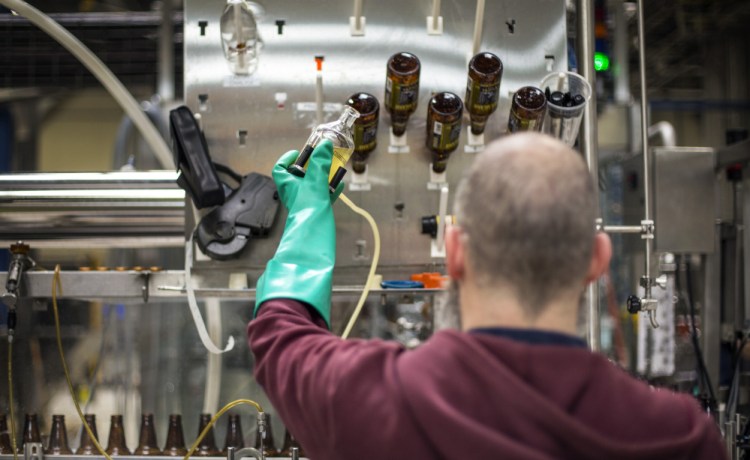Four Maine breweries have signed on to an effort to fight the Trump administration’s plan to repeal a rule that gave the Environmental Protection Agency wide authority to regulate pollution in wetlands and other bodies of water that run into major rivers.
Rising Tide Brewing Co., Baxter Brewing Co., Allagash Brewing Co. and Maine Beer Co. signed a letter to the EPA and the U.S. Army Corps of Engineers objecting to rescinding the Clean Water Rule, which was issued in 2015 under the Obama administration.
“We oppose any changes to the Clean Water Rule that would weaken the protections it established for critically important waterways like small streams and wetlands. Our craft breweries depend on those waterways to provide the clean water that we use to brew our beer,” the letter says.
On Feb. 28, President Trump issued an executive order to the EPA that directed the agency to review the Clean Water Rule and rescind or revise it. The rule was issued in 2015 as the Obama administration sought to clarify what bodies of water were subject to government regulation under the Clean Water Act.

University of Southern Maine student Ryan Michaud checks acidity levels in a beer sample as Rising Tide Brewing co-owner Heather Sanborn watches in 2016. The quality of water used for brewing is critically important to her business, she says.
The EPA plans to rescind the 2015 guidelines and institute new rules within the next year.
Maine’s breweries are part of a Natural Resources Defense Council group of 48 craft breweries from across the country advocating for clean water.
“Quality beer depends on good water, which is why we felt it was important to add our voice in support of the existing Clean Water Rule,” said Jason Perkins, Allagash’s brewmaster.
The Clean Water Rule was developed to make it clear what bodies of water the EPA and Army Corps of Engineers can regulate.
The 1972 Clean Water Act gave the agencies control over rivers and interstate waterways such as the Great Lakes. A series of court rulings left questions about the agencies’ powers, so the Obama administration issued the rule in 2015 to clarify that the EPA and the Army Corps of Engineers had wide power to regulate waters.
The Clean Water Act remains in effect, but the Trump administration’s new rule would restrict what waterways the EPA and the Army Corps of Engineers oversee.
Under the Trump administration’s plan, the government could only regulate navigable bodies of water. Obama’s rules allowed the regulation of ponds, lakes, rivers and streams that feed into navigable bodies of water.
The change has a number of supporters, including utility companies, small businesses and groups that see Obama’s rules as federal overreach.
House Speaker Paul Ryan, R-Wis., told The Washington Post: “The West has finally won in the battle over the Obama administration’s (Waters of the United States) rule. This regulation would have been a disaster for rural communities in the West and across the country, giving Washington near-total control over water resources.”
But Maine brewers say the Trump administration’s plan is what concerns them. Heather Sanborn, co-founder of Rising Tide, said in an email that water quality is a critical component of her business.
“Good beer literally depends on clean water,” Sanborn said. “Indeed, every Thursday our staff does sensory analysis training on the water that is coming in from the Portland Water District and that sensory analysis must be performed before each batch of beer is brewed. Small variations in the amount of chemical treatment by PWD can make a large difference in the quality and consistency of our beer. Any weakening of Clean Water rules could have an impact on the cleanliness and chemical treatment of our brew water.”
The EPA argues that the rules change is necessary to maintain the status quo in water regulation.
“State, tribal and local governments have well-defined and longstanding relationships with the federal government in implementing (Clean Water Act) programs,” the EPA said, “and these relationships are not altered by this proposed rule, (which) will not establish any new regulatory requirements. Rather, the rule simply codifies the current legal status quo.”
Maine breweries employed 1,660 people and contributed $228 million to the state’s economy last year, according to information released by the Maine Brewers’ Guild.
James Patrick can be contacted at 791-6382 or at:
jpatrick@pressherald.com
Twitter: mesofunblog
Send questions/comments to the editors.



Comments are no longer available on this story